Our Team
Current Team Members
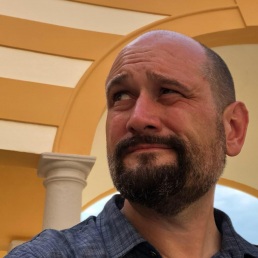

Dr. Henry Winter
Co-Lead
Dr. Henry “Trae” Winter III, is the Chief Scientist and Co-Founder of the ARISA Lab. Dr. Winter has worked on eight NASA missions observing the Sun. His primary research focus is improving computer simulations to explore how energy is released in the Sun’s atmosphere, known as the “corona,” and how this happens in other stars. Dr. Winter has designed video wall exhibits for the Cooper-Hewitt National Design Museum, the National Air and Space Museum, North Carolina State University’s Hunt Library, and the Harvard Art Museums’ Lightbox Gallery.
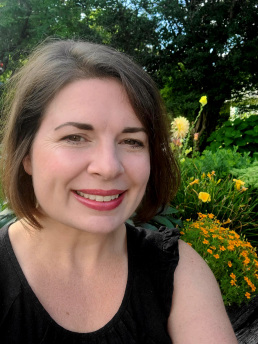

MaryKay Severino
Co-Lead
MaryKay Severino is the Education Director and Co-Founder of the ARISA Lab. After earning a business degree from Villanova University, she worked in South Carolina and California as a Program Manager and Marketing Consultant. Seeking a new direction, she earned her Master’s degree in Education and gained experience working in public school systems and universities in South Korea and the United States. Her time abroad, living in new cultures and adapting to language and literacy challenges, shaped her perspective on creative communication and education. The Eclipse Soundscapes project aligns perfectly with her interests, allowing her to apply her skills to promote, plan, and execute a project that shares the wonder and excitement of NASA science with a broad audience.
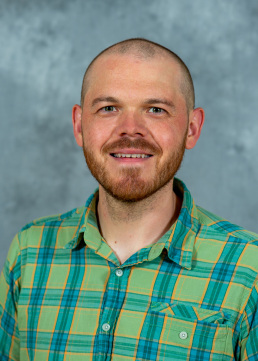

Dr. Brent Pease
Soundscapes Subject Matter Expert
Dr. Brent Pease is an assistant professor of biodiversity conservation in the Forestry Program at Southern Illinois University. His research interests include ecology and conservation of wildlife, species distribution modeling, citizen science, applied spatial ecology, and landscape ecology.
Dr. Pease’s research addresses a diverse set of applied issues in wildlife conservation and management, ranging from understanding large-scale changes in wildlife distribution and abundance, to developing sampling protocols for species of conservation concern, and evaluating harvest regulations for game species. To address these issues, his research uses observational and experimental fieldwork combined with quantitative modeling and spatial analysis to inform state and regional management strategies. He also leads and contributes to a range of Citizen Science projects and works to incorporate these efforts into his research program. Dr. Pease teaches courses on wildlife monitoring, spatial ecology, data management and analysis, and more. Further information can be found at Dr. Pease’s website: www.peaselab.com
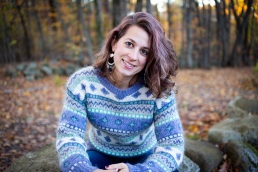

Kelsey Perrett
Editor and Content Writer
Kelsey Perrett is a Massachusetts-based freelance writer, editor, web producer, and social media specialist. She enjoys writing about travel, health and fitness, and the environment. When she isn’t writing, she can be found outside exploring trails, at the gym/yoga studio, or attempting to conquer an ever-expanding reading list. Kelsey got involved in the Eclipse Soundscapes Project due to her interest in environmental reporting, and is thrilled to work with a talented group to make the wonders of space accessible to everyone.
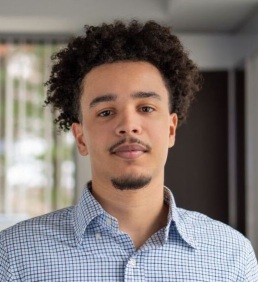

Joel Goncalves
Developer
Joel Goncalves is a software engineer from Brockton, Massachusetts and a Computer Science graduate from the University of Massachusetts, Boston. As an engineer, he is passionate about creating and contributing to meaningful applications. As a hobby, he likes to hike, travel and play sports.
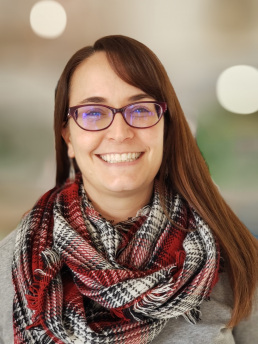

Tracey Kline
In-service Educator Consultant
Tracey Kline has been teaching since 2001 in several different content areas as well as in English Language Development. Tracey earned her elementary education degree at University of Illinois and her masters degree at Salem State University. Her professional passion is advocating for students learning a new language and making academic material accessible to this population. In her free time Tracey likes to spend time with her teenage daughter going to local events and reading.
Science Advisory Board
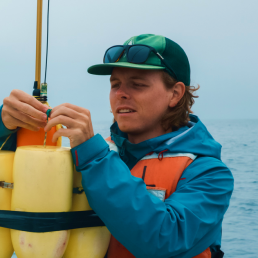

Dr. Will Oestreich
Postdoctoral Fellow at the Monterey Bay Aquarium Research Institute
Will explores animal behavior in dynamic and changing ecosystems, often by listening for and deciphering the behavioral information encoded in the sounds that animals produce. He is particularly interested in how animal groups acquire and share information about their surroundings, how they make behavioral decisions, and how we can use this information to inform more equitable and effective ecosystem management. Will currently conducts this work as a postdoctoral fellow at the Monterey Bay Aquarium Research Institute. He previously completed a PhD in Biology at Stanford University and held positions at the Woods Hole Oceanographic Institution and the Natural Resources Defense Council.
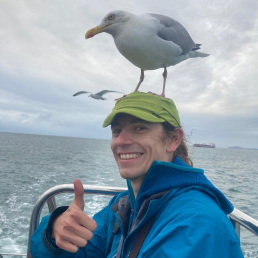

Dr. Neil Gilbert
Assistant Professor in the Department of Integrative Biology at Oklahoma State University
Neil Gilbert is an assistant professor in the Department of Integrative Biology at Oklahoma State University. His research seeks to understand how anthropogenic pressures affect wildlife behaviors, populations, and communities, with a particular emphasis on birds and mammals. His website is: https://www.gilbertecology.
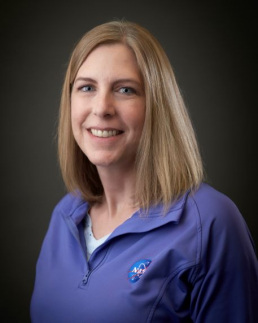

Dr. Angela Des Jardins
Director, Montana Space Grant and NASA EPSCoR
PI, Nationwide Eclipse Ballooning Project
Associate Research Professor, Department of Physics, Montana State University
Dr. Angela Des Jardins, a solar physicist by training, is the Director of the Montana Space Grant Consortium and Montana NASA EPSCoR, and is a Physics Research Professor at Montana State University. Montana Space Grant and NASA EPSCoR are programs that work to strengthen education and research in Montana in fields related to aerospace science and engineering. Angela is passionate about enabling others, especially young people interested in science, technology, engineering and math (STEM). For example, Angela is the innovator of the Nationwide Eclipse Ballooning Project, which engages thousands of higher education students in mission-like experiences during solar eclipses. Angela finds great joy in being with her kids and being able to work on space topics while remaining in Montana.
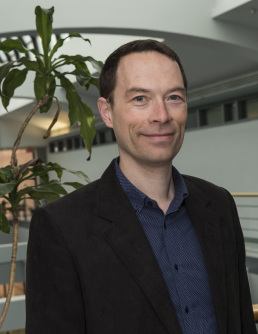

Dr. Jack Ireland
Research Astrophysicist
Dr. Jack Ireland is the US Project Scientist for the Solar and Heliospheric Observatory, and the Project Scientist of NASA’s Solar Data Analysis Center. His primary research foci are the heating of the solar corona and the application of novel analysis techniques to solar physics data. He is a co-founder of both the free and open-source SunPy data analysis environment and the Helioviewer solar data visualization project.
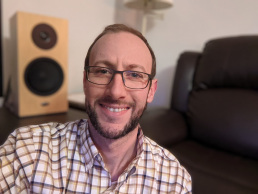

Tyler Kinnear
Tyler Kinnear is an educator/researcher/artist based in Cambridge, MA. His research interests include soundscapes, histories and theories of listening, and music and nostalgia. His work has been published in such journals as Chigiana: Journal of Musicological Studies, Ecomusicology Review, and Environment, Space, Place. Tyler is the principal investigator of Sonic Histories, an interdisciplinary research initiative studying how students experience histories of race, class, and belonging at an institution of higher learning through sounds heard and imagined.
.
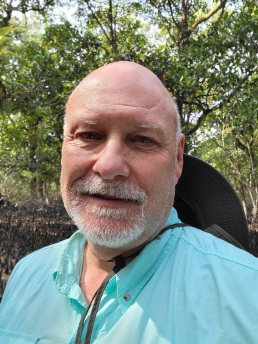

Dr. Bryan C. Pijanowski
Professor of Soundscape Ecology
Bryan C. Pijanowski is Professor of Soundscape Ecology in the Department of Forestry and Natural Resources at Purdue University, West Lafayette, Indiana. He is also Director of the Purdue Discovery Park’s Center for Global Soundscapes and has published extensively in the area of soundscape ecology and landscape ecology, with key papers appearing in Bioscience, Landscape Ecology, Ecological Indicators, Proceedings of the National Academy of Sciences and Global Environmental Change. He has just completed a textbook entitled Principles of Soundscape Ecology: Discovering our Sonic World with University of Chicago Press due out in December 2023. He is also the Executive Producer of the NSF-funded, giant screen, big screen interactive film Global Soundscapes: A Mission to Record the Earth! He has been funded by NSF, NASA, USGS, EPA, USDA, NOAA, and various foundations. He serves as the managing director of the Record the Earth! Citizen Science project located at recordtheearth.org and his umbrella center project, Record the Earth – Discovery, has completed 62 research projects in 29 of Earth’s 32 major biomes. He has been listed as one of the top 2% (based on citations) of all scientists in the world by Stanford University. Dr. Pijanowski provides input to the project on the concepts of soundscapes, soundscape ecology, and informal STEM learning.
Websites
- Principles of Soundscape Ecology: Discovering our Sonic World (University of Chicago Press; Dec 2023)
- Discovery Park Center for Global Soundscapes
- Global Soundscape Database Online
- Executive Producer, Global Soundscapes! A Mission to Record the Earth (An Interactive IMAX experience)
- Record the Earth Citizen Science Project
- iListen.org MOOC for Middle School STEM Education
Our Partners
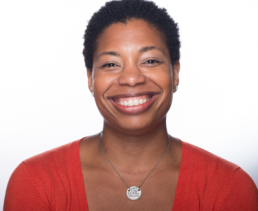

Reginé Gilbert
Industry Assistant Professor
Reginé Gilbert is a user experience designer, educator, and author with over ten years of experience working in technology. She has a strong belief in making the world a more accessible place that starts and ends with the user. Reginé’s areas of research focus are digital accessibility, inclusive design, and immersive experiences. Reginé is lending her experience and expertise to collaborate with the Eclipse Soundscapes Project in its efforts to create accessible and engaging learning experiences.
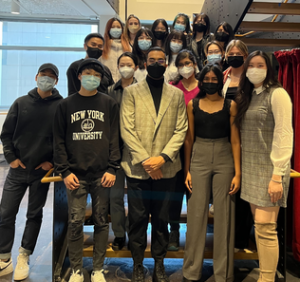

Through Reginé’s real-world client classroom program at The NYU Tandon School of Engineering Integrated Design and Media Department, the Eclipse Soundscapes team works with Reginé to engage her students in tackling various real-world accessible user interface challenges faced by Eclipse Soundscapes. This collaboration provides a unique opportunity for students to enhance their accessibility skills and knowledge early in their STEM careers while also supporting a NASA project in becoming more accessible and inclusive.


SciStarter
SciStarter is a globally acclaimed, online citizen science hub where thousands of projects, searchable by location, topic, age level, etc., have been registered by individual project leaders or imported through partnerships with federal governments, NGOs, and universities. As a research affiliate of North Carolina State University (NCSU) and Arizona State University (ASU), and a popular citizen science portal, SciStarter hosts an active community of more than 170,000 registered SciStarter members and millions of additional site visitors. Hundreds of citizen science projects use SciStarter’s National Science Foundation (NSF)-supported APIs to help volunteers earn credit for their participation in their SciStarter dashboard, across all kinds of projects and platforms. These features enable SciStarter’s partners (libraries, schools, museums, Girl Scouts and more) to catalyze customized engagement pathways and track and support the progress of their communities through SciStarter. SciStarter also supports researchers in managing projects, including best practices for engaging participant partners. SciStarter also develops and distributes original content across syndicated blogs, a podcast, weekly events on Zoom, a bi-monthly newsletter, bi-monthly emails to members, social media and a YouTube channel. Learn more about SciStarter.
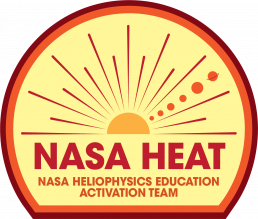

NASA HEAT
Federal Agency Partner
The NASA Heliophysics Education Activation Team (NASA HEAT) capitalizes on NASA’s rich history of sharing research and technology through compelling and innovative education projects. NASA HEAT (formerly NASA Space Science Education Consortium (NSSEC)) continues the Science Mission Directorate’s (SMD) work at the forefront of NASA’s educational endeavors by linking exciting science and missions directly to the American public. NASA HEAT is partnering with ARISA Lab on its Eclipse Soundscapes Mobile Application Project to provide the script calculating the timing of the eclipse, subject matter experts, and the funding that makes the Eclipse Soundscapes mobile application possible.


National Center for Accessible Media, GBH
The Carl and Ruth Shapiro Family National Center for Accessible Media (NCAM) is a non-profit branch of GBH studios in Boston which is dedicated to achieving media access equality for people with disabilities. NCAM is partnering with Eclipse Soundscapes to provide media coverage of eclipses, including illustrative audio descriptions of eclipse features, which will allow all users, including visually impaired individuals, to experience an eclipse in a multimodal manner through the inclusion of real-time audio narrations. NCAM also conducts reviews of the Eclipse Soundscapes app to enhance its accessibility.
Past Team Members
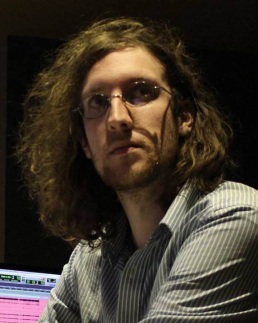

Miles Gordon
Audiovisual Production Specialist
Miles Gordon is an audio engineer and multi-media artist from New England. Between mixing and mastering tracks for his friends and his work on the Eclipse Soundscapes project, he also enjoys tinkering with machines and editing papers for a Chinese translation company. When he grows up, he wants to be a supporting character in a William Gibson novel. Miles got involved in the Eclipse Soundscapes Project after a mutual friend introduced him to Dr. Winter. Their shared enthusiasm for innovation in audio engineering led to a collaboration on Eclipse Soundscapes.
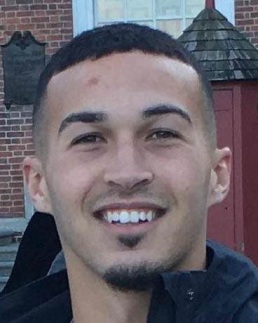

Arlindo Goncalves
Application Developer
Arlindo Goncalves is an iOS developer from Brockton, Massachusetts. He aspires to develop applications that help schools and other institutions engage youth, making education a focal point in their lives. In his free time, Arlindo enjoys playing soccer and cooking for his family and friends.
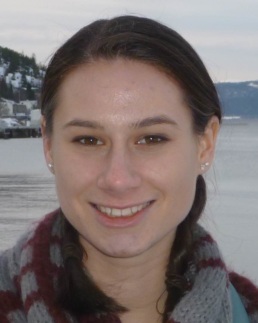

Christina Migliore
Image Analysis Intern
Originally from a small town in New Jersey, Christina is an undergraduate student studying physics and math at Northeastern University. She works on image and video analysis for the Eclipse Soundscapes project and numerically modeling solar flares at the Harvard-Smithsonian Center for Astrophysics. She became involved with Eclipse Soundscapes because she enjoys scientific outreach and is interested in conveying numerical information in new ways. Christina hopes to continue studying in the field of plasma physics as a graduate student.
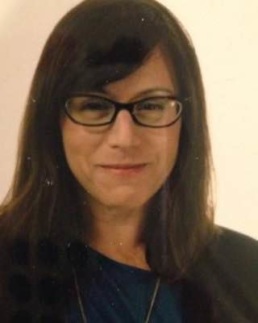

Kristin DiVona
Graphic Designer
Kristin DiVona is the Visual Information Specialist for NASA’s Chandra X-Ray Observatory. An award-winning designer and illustrator, she is responsible for the creation of printed materials, exhibits, and interactive educational tools that visually interpret concepts related to astrophysics and x-ray astronomy — connecting everyday life to science exploration and technology. (Yes, it’s as cool as it sounds.) She is a graduate of Rhode Island School of Design. Kristin is waiting not-so-patiently for this amazing astronomical event, and is excited to work with the Eclipse Soundscapes team on this inclusive design project.
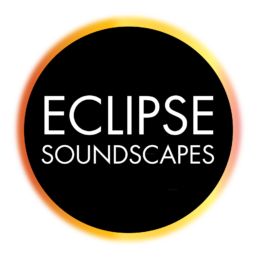

Kyle Bertelsen
Web Developer
Kyle Bertelsen was a web developer based out of Brooklyn, New York. Kyle came on to the project late and did an incredible job bringing Kristin’s designs to life on the web in a very short time. He was an integral part of the team and is responsible for much of the project’s success. Kyle passed away suddenly on January 2, 2018. Kyle’s absence is still strongly felt by the entire team and we mourn his passing. We respect and appreciate his diligent work, but we miss the person behind it.
Past Partners
Science Friday
The Science Friday Initiative is a non-profit organization dedicated to increasing the public’s access to science and scientific information. They host a radio show distributed by Public Radio International (PRI) and produce science and technology related digital videos, original web articles, and educational resources for educators. Science Friday partnered with Eclipse Soundscapes to provide audio recordings and social media support for the project.
National Park Service
The National Park Service (NPS), an agency of the United States Department of the Interior, manages national parks, monuments, conservation, and historical sites throughout the United States. NPS partnered with Eclipse Soundscapes during the August 2017 Eclipse to collect mono and binaural field recordings in parks across the country, especially those in the path of totality. They collected data the day before, the day of, and the day after the 2017 eclipse in order to study how wildlife sounds fluctuate with the changes in light and temperature caused by the eclipse.
Eclipse Mob
Eclipse Mob was a crowdsourced effort to conduct the largest-ever low-frequency radio wave propagation experiment during the 2017 solar eclipse. They used radio signals to study the effect of sunlight on the ionosphere. By crowdsourcing, Eclipse Mob collected radio wave signals at locations across the United States, allowing them to study how the signals are affected as they travel along various paths. Eclipse Mob partnered with Eclipse Soundscapes to provide radio wave data (a form of audio data).
Smithsonian Institution
The Smithsonian Institution is a group of museums and research centers established and administered by the United States government. Among the Smithsonian’s many facilities are the National Air and Space Museum and the Center for Astrophysics | Harvard & Smithsonian. The Smithsonian partnered with Eclipse Soundscapes to provide a headquarters and funding for Phase 1 of the Eclipse Soundscapes project.
National Girls Collaborative
The National Girls Collaborative Project (NGC) brings together United States organizations that are committed to informing and encouraging girls to pursue careers in science, technology, engineering, and mathematics. NGC partnered with Eclipse Soundscapes to organize listening parties where young women were able to experience the 2017 total solar eclipse in a multi-sensory way.
Citizen CATE
The Citizen CATE (Continental-America Telescopic Eclipse) Experiment was an effort to document the 2017 Eclipse by capturing images of the inner solar corona using a network of more than 60 telescopes. CATE worked with high schools, universities, education groups, astronomy clubs, national science research labs, and corporate sponsors to produce 90 minutes of continuous, high-resolution, and rapid-cadence images detailing the Sun’s inner corona. Citizen CATE partnered with Eclipse Soundscapes to provide high quality images for the Eclipse Soundscapes app.
Brigham Young University, Idaho
Brigham Young University (BYU) is a private research university with three locations, including Rexburg, Idaho. They partnered with Eclipse Soundscapes to provide a series of field recordings of the 2017 Eclipse, including audio of an active beehive. Because Rexburg lay in the path of 2017 totality, BYU hosted a number of viewing and educational events with the City of Rexburg.